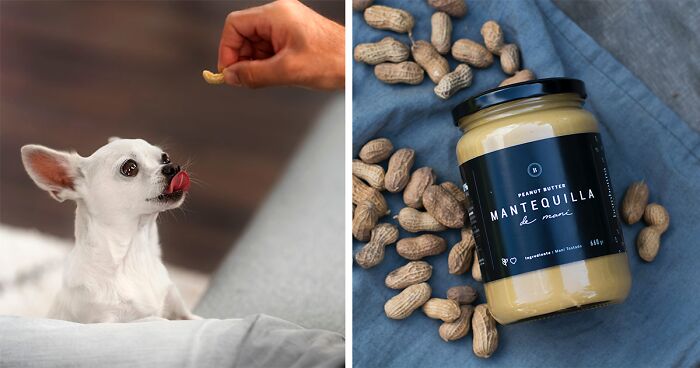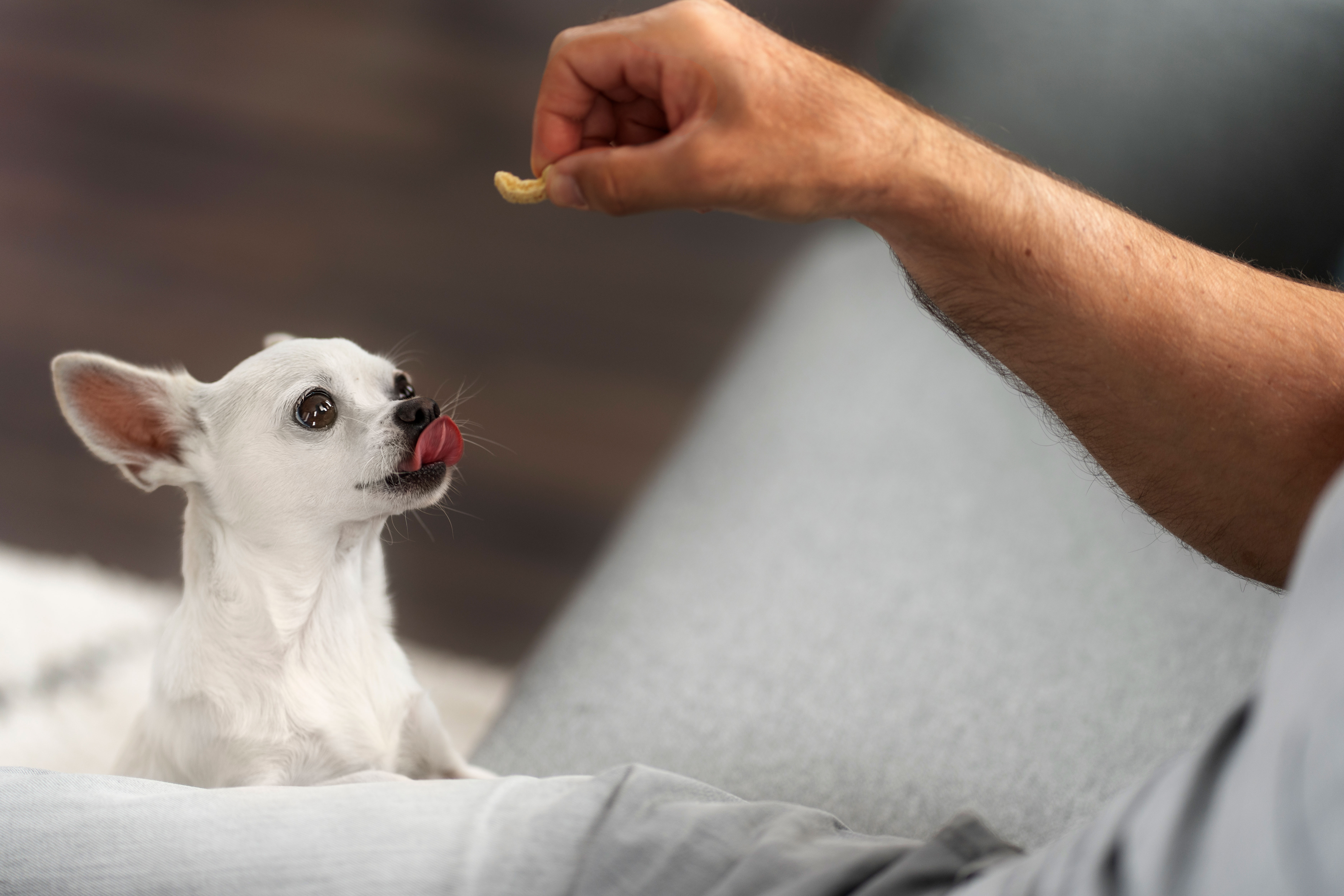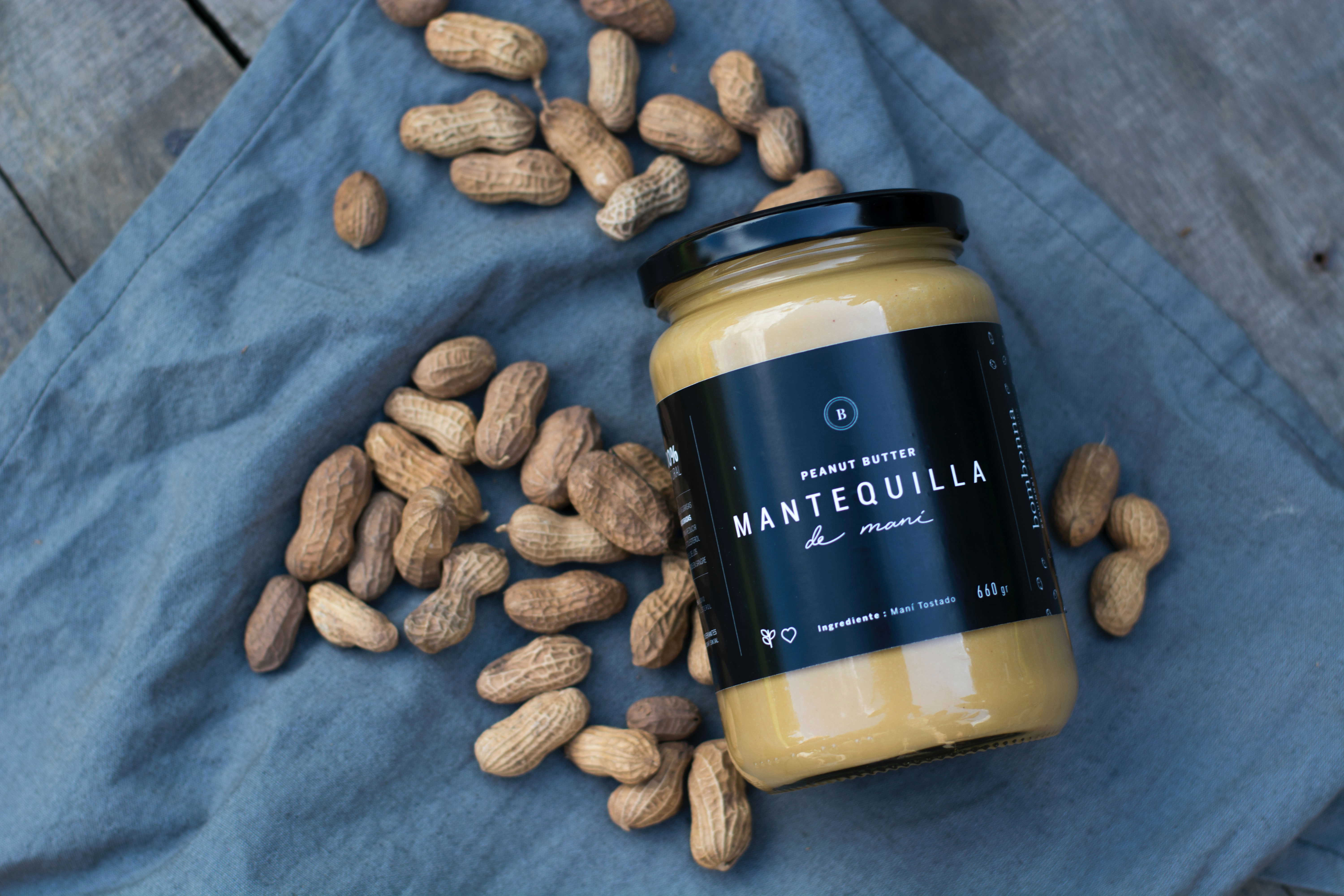
Are Peanuts and Peanut Butter Safe for Dogs? Must-Know Food Safety for Your Pet
Our dogs happily share many aspects of our lives with us. From sleeping in our beds to coming with us to work, we’re always happy to involve our four-legged friend in as many aspects of our lives as possible. But what about when it comes to food?
Knowing which ‘human’ foods are okay for your dog to eat, can help decrease the chances of them becoming sick. So in this article, we’ll zoom in on whether peanuts are safe for dogs.
- Small amount of unsalted, shell-free peanuts can be safe for dogs.
- Peanut butter is safe for dogs if it doesn't contain xylitol.
- High fat in peanuts may cause overweight issues or pancreatitis.
- Macadamia nuts and black walnuts are toxic for dogs to eat.
We’ll also take this opportunity to discuss some nuts that dogs can’t eat. So, let’s get started!
Disclaimer: Please refer to the information in this article as a guide only. If you want to include something new in your pet’s diet, it’s best to consult your veterinarian directly first.
The information provided herein is for informational purposes only. Please refer to our disclaimer for more details..
What happens if a dog eats peanuts?
If your dog eats a small amount of the correct type of peanuts, then you’ll be relieved to hear, that it’s unlikely that anything bad will happen if they eat peanuts.
That being said, it’s important to ensure that your dog doesn’t eat too many, and eats the right kind (we’ll discuss this in the later sections).
What type of peanuts can my dog eat?
If you do want to give your dog peanuts, then it’s best to choose unsalted, shelled peanuts. The snack-type peanuts that many of us humans like to enjoy aren’t the best choice for your pet as they often contain added salt, preservatives, and even flavorings that dogs neither need nor benefit from.
How many peanuts can a dog eat per day?
It’s best to consider peanuts as more of a treat item, rather than a dietary staple. This is because they are high in fat, and can cause health problems for your dog (we’ll talk more about this later). This means that a couple of peanuts per day is more than enough.
Can a dog eat peanut butter?
Dogs can eat peanut butter, in very small amounts. so long as it doesn’t contain xylitol. Xylitol is a sweetener commonly used in the preparation of sugar-free drinks and snacks.
Xylitol poisoning is a very serious condition in pets, and any animal that is thought to have consumed xylitol should be taken to a veterinarian immediately. Peanut butter brands can vary in terms of ingredients, so always check the label!
Are peanuts bad for dogs?
If your dog eats lots of peanuts, or the wrong type, then peanuts can be bad for dogs. Since peanuts are high in fat, if your dog eats too many they could become overweight, or even develop pancreatitis.
Additionally, as we mentioned earlier, the snack type of peanuts isn’t a good choice for your pet. This is because they are often prepared with lots of salt. Salted peanuts contain more sodium than is safe for your dogs and can cause problems with their kidneys and blood pressure.
If you want to give your dog peanuts, then the best peanuts to give are unsalted peanuts. Don’t forget to only get them a peanut or two, and always remove the shell.
When it comes to feeding them to your dog pet owners should remember the following things:
- Moderation is key – too much can cause an upset stomach or worse.
- Make sure you remove the peanut shell – it can pose a choking hazard!
- Peanut butter – xylitol is toxic for dogs, don’t forget to check the label and know the signs of xylitol poisoning. Many pet parents prefer to make their peanut butter for their four-legged friends.
- Don’t assume that peanuts are safe- honey-roasted peanuts, dry-roasted peanuts or salted peanuts contain more sodium than your dog needs, so always be sure to check the label.
- Raw peanuts are the best kind of peanuts to give as a treat to your dog!
Can dogs be allergic to peanuts or peanut butter?
Yes, dogs can be allergic to peanuts or peanut butter. In the case of an allergic reaction, pet parents may notice the following symptoms in their dog:
- Vomiting.
- Diarrhea.
- Difficulty breathing.
- Hives.
If you notice any of the above in your dog, then it’s best to take them to a veterinarian as soon as possible.
Which other nuts are not safe for dogs to eat?
Since knowing which human food your dog can and can’t eat is so important, we’ve dedicated a whole section to explaining which types of nuts can be harmful to dogs.
In general, it’s good for pet parents to remember that whilst it may be tempting to treat your pet to nuts, they are often high in fat, and not the healthiest choice for your pet, even if they aren’t directly harmful. If your dog ingests too many nuts, they are at increased risk of suffering from a painful condition called pancreatitis.
In this section and to end this article, we’ll briefly take a look at some nuts that are harmful to dogs.
If your dog has eaten something harmful, it’s best to call your veterinarian straight away. The animal poison control center also offers a 24/7 service for pet parents to get advice in the case of a pet who’s suspected to have eaten something potentially harmful. Seeking veterinary help early on in the course of a potential problem hugely increases the chances of your pet making a thorough recovery and is always recommended by veterinarians.
Macadamia nuts
It’s not known exactly why macadamia nuts are so harmful to dogs, but they are to be avoided at all costs! Even a small amount of these nuts can cause symptoms such as:
- Vomiting.
- Increased temperature.
- Difficulty moving.
- Neurological signs.
Since nuts such as macadamia nuts often contain a high proportion of fat, they can increase the chances of dogs suffering from pancreatitis (inflammation of the pancreas).
Almonds
Unlike academic nuts, almonds aren’t thought to cause poisoning in dogs, however, your dog shouldn’t eat them. This is because they can upset a dog’s gastrointestinal system.
Pistachios
The high fat content of pistachios means they they can cause problems such as pancreatitis in dogs, and should not be given.
Black walnuts
Black walnuts are a definite no-go when it comes to our furry friends! This is because they contain ‘juglone’, a chemical that is very harmful to dogs. Juglone is known to cause symptoms such as diarrhea, vomiting, and even worse.
Cashews
Like a few of the other nuts we’ve mentioned in this section, cashew nuts don’t contain anything particularly harmful to dogs. However, it’s best to avoid giving cashews to your dog, as they are high in fat and can increase the chances of your pet suffering from pancreatitis.
Conclusion
We hope you’ve enjoyed reading this article about whether peanuts are safe for dogs to eat. Before you feed your dog new foods, it’s always best to read up and check that they won’t negatively impact your dog’s health.
104views
Share on Facebook
 Dark Mode
Dark Mode 

 No fees, cancel anytime
No fees, cancel anytime 


 Image credits:
Image credits:  Image credits:
Image credits: 










































-1
0